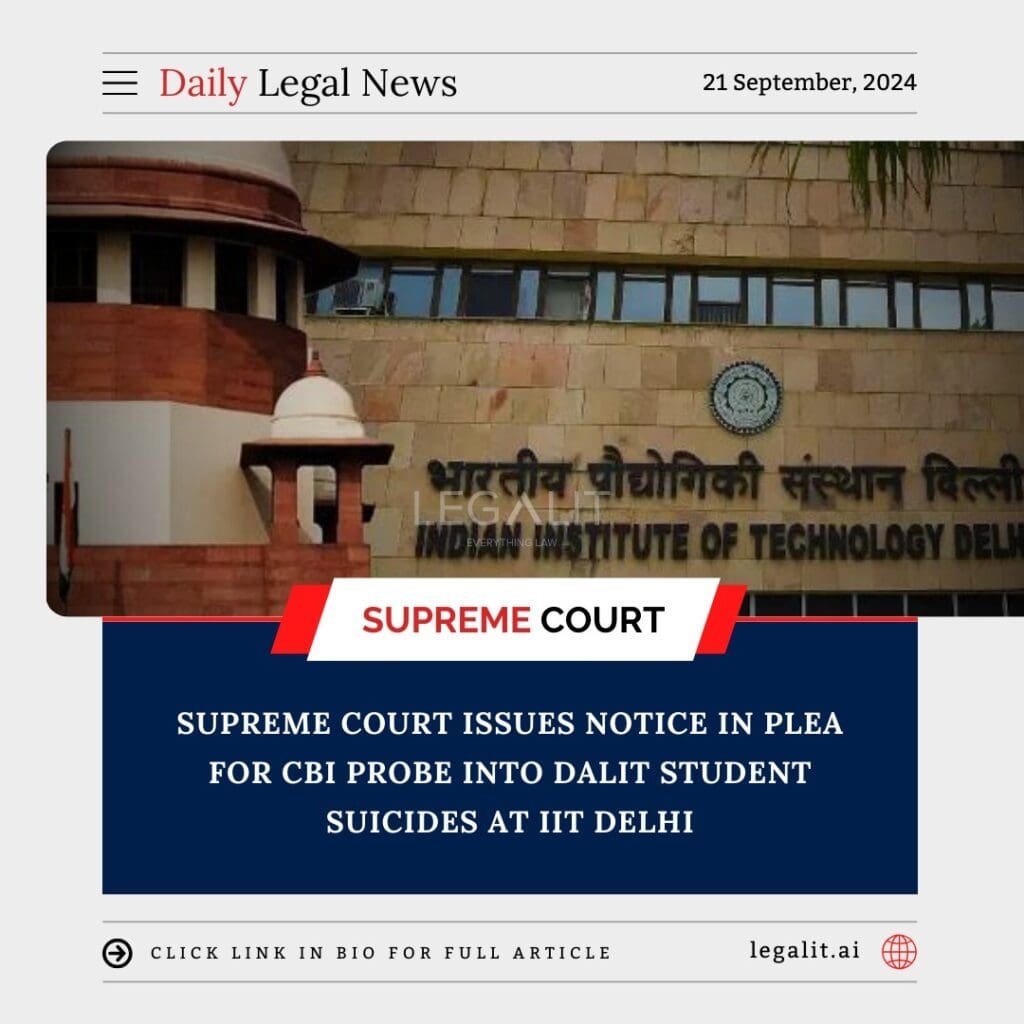
The Supreme Court of India has issued a notice regarding a plea seeking a Central Bureau of Investigation (CBI) probe into the tragic suicides of Dalit students at the Indian Institute of Technology (IIT) Delhi. This significant development highlights ongoing concerns about mental health, social justice, and the systemic issues faced by marginalized communities within educational institutions.
Background of the Plea
The plea has emerged in the wake of multiple suicides by Dalit students at IIT Delhi, raising alarm about the mental health challenges and social pressures these students may encounter. The petitioners argue that an independent CBI investigation is essential to uncover any potential systemic issues contributing to these tragic events.
Key Arguments in the Plea
- Systemic Discrimination: The petition emphasizes that Dalit students often face discrimination and social isolation within premier educational institutions, which can adversely affect their mental health and overall well-being.
- Need for Accountability: The plea calls for accountability from the institution and a thorough investigation into the circumstances surrounding the suicides. Petitioners argue that an internal inquiry may not adequately address the complexities involved.
- Mental Health Concerns: The ongoing mental health challenges faced by students in high-pressure academic environments, particularly those from marginalized backgrounds, are highlighted as a critical issue needing urgent attention.
- Precedent for Investigation: The plea references previous instances where similar investigations were warranted, arguing that a CBI probe could provide a comprehensive understanding of the issues at hand.
Supreme Court’s Response
By issuing a notice, the Supreme Court has acknowledged the seriousness of the plea and the need for further examination of the circumstances surrounding the suicides. The court’s notice is a preliminary step, allowing the involved parties, including the government and IIT Delhi, to present their views on the matter.
Implications of the Decision
- Focus on Mental Health: The proceedings may bring increased attention to mental health resources and support systems within educational institutions, particularly for marginalized students.
- Policy Reforms: Depending on the findings of any potential investigation, there may be calls for policy reforms aimed at creating more inclusive and supportive environments for all students, particularly those from disadvantaged backgrounds.
- Social Justice Awareness: This case could heighten awareness of social justice issues within academia and prompt broader discussions about the challenges faced by Dalit and other marginalized students in higher education.
- Judicial Oversight: The Supreme Court’s involvement underscores the judiciary’s role in addressing systemic issues and ensuring that educational institutions uphold the rights and welfare of all students.
Conclusion
The Supreme Court’s notice in response to the plea for a CBI investigation into Dalit student suicides at IIT Delhi is a critical development in addressing the mental health and social justice challenges faced by marginalized communities in educational settings. As the case unfolds, it has the potential to lead to significant discussions on mental health, systemic discrimination, and the responsibilities of educational institutions in supporting their students. The court’s engagement reflects a commitment to ensuring accountability and safeguarding the rights of vulnerable populations within the academic sphere.